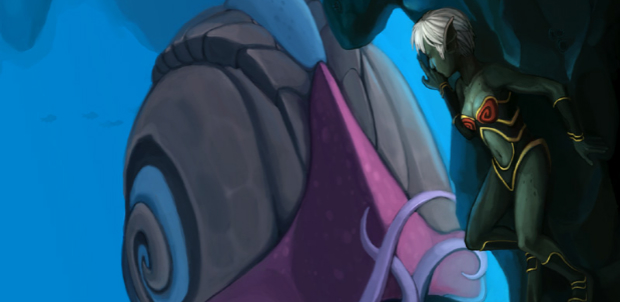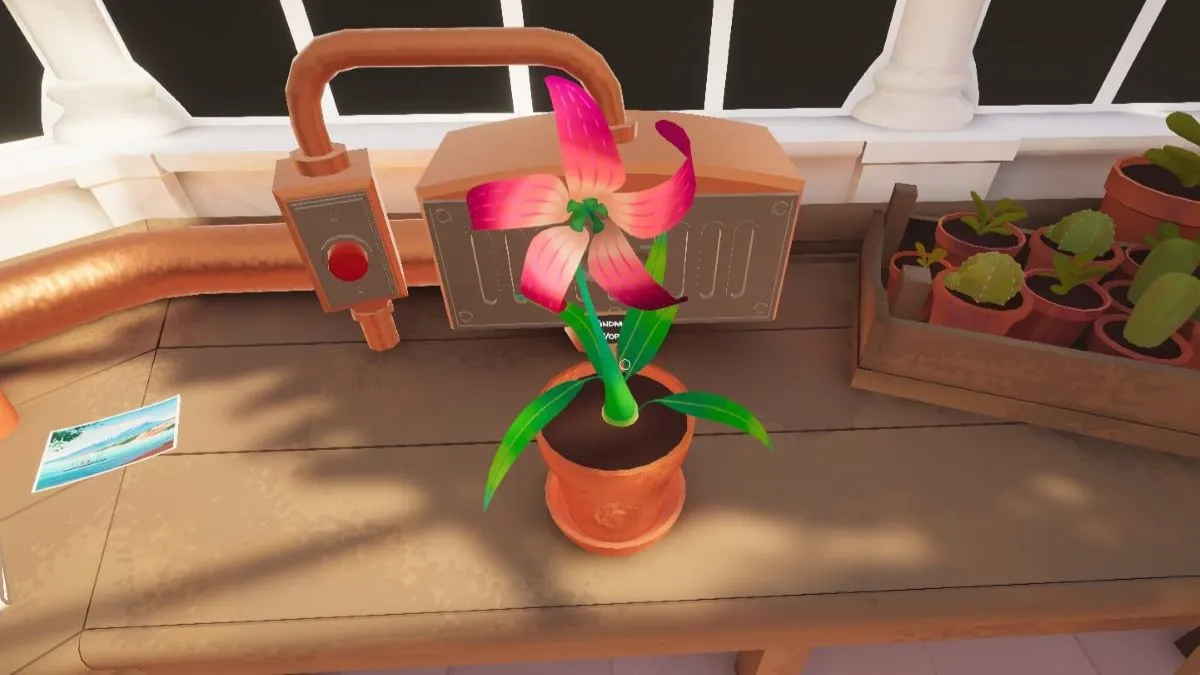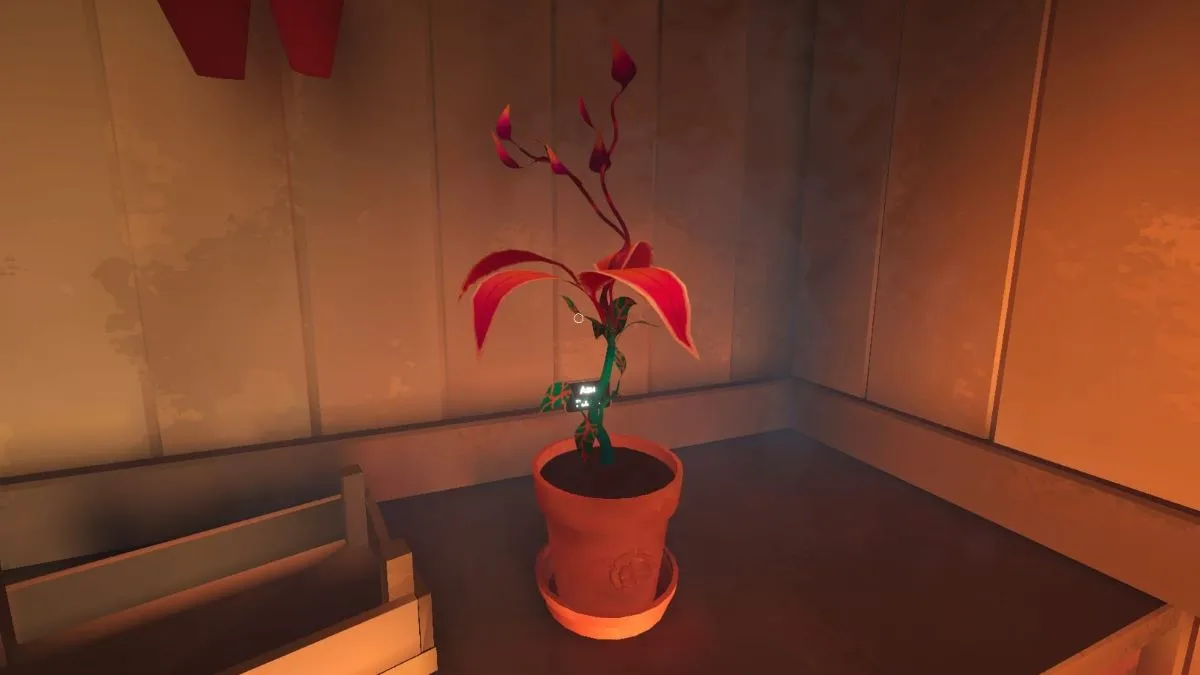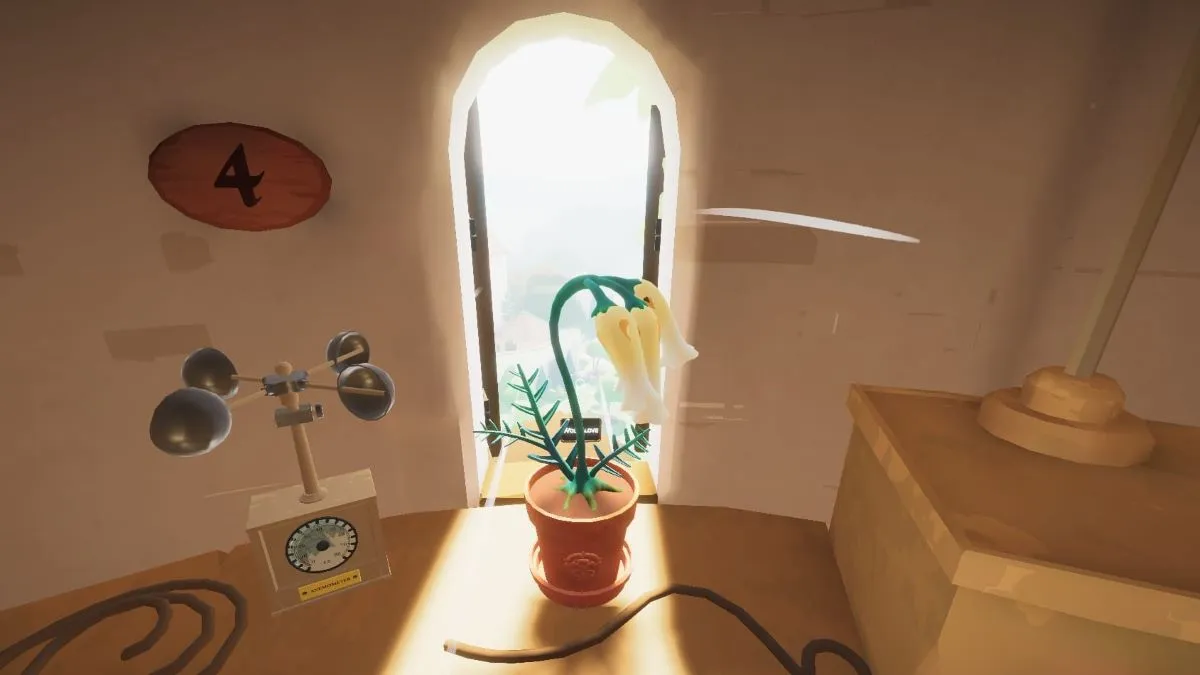The full name of the talk was “Tripping the art fantastic: A beginner’s guide to the brains of these here artists”. It featured Edmund McMillen (Super Meat Boy), David Hellman (Braid) and Derek Yu (Spelunky). As a fan of all three and an artist, you couldn’t drag me away from such a panel!
These three talented fellows willingly had their brains picked in front of a live audience. There was laughter, tears, drawings of boobs and artistic wizardry abound. The awesome was a bit hard to keep up with, but I did my best to condense it into written word for you all to enjoy. Hit the jump for the summary of the journey into these three artists’ minds; it’s a great read even if you’re not an artist (but it might help).
Ben Ruiz of Flashbang Studios (you know, the guys who made Off-Road Velociraptor Safari) acted as the moderator for the discussion. His first question to the panelists was, “Which of your works are you most proud of?”
McMillen’s answer was Aether because of the way the game flowed from him. It was easy to make, very personal, and it turned out better than anything else he’d made so far. Hellman looked back fondly on Braid and his old comic, A Lesson is Learned, But the Damage is Irreversible. Yu picked Aquaria because it was the hardest game he’d worked on. The difficulty caused him to grow as an artist.
Ruiz jokingly asked Yu how much of the Seumas McNally Award that Aquaria won was because of its art, but he did feel like it made a big difference. “Graphics are the first thing people see. They tell a story by themselves.”
The next question was, “Which of your works are you most ashamed of?”
When working on Lesson, Hellman sometimes had to “get through some crap so [he] could move on to the better stuff”. Even so, he didn’t mind that they’re a part of his body of work. “It’s interesting to see the contrast,” he said. McMillen had a not-so-fond look back on a poetry book he wrote in high school. It was pretty self explanatory why that would be something to be a bit ashamed of.
Hellman then pulled out a little orange booklet. It was a small, homemade comic that Yu had created several years earlier, which was “full of boobies”. He felt it was appropriate to pull out for this question, but Yu assured everyone that he wasn’t at all ashamed about the weird, tit-filled ‘zine.
Ruiz then asked the panelists, “What is the most inspirational thing you’ve ever experienced?”
In response, McMillen told the audience a story about an independent artist who visited his class in high school. “I thought he was the coolest guy in the world,” he said. He saw so much freedom in the man that it pushed him to try and lead the same kind of life. Hellman’s inspiration comes from no one person or thing; he is inspired by the wrold. He feels he needs to answer his reactions to things he sees or hears by making something.
Yu’s mother and father were his biggest inspiration. “I drew before I could write. My mom would spend time making up stories for the things I drew, and my dad was the first person I drew with.” He still talks shop with his dad and shows his work off to his parents.
“How often do you feel deprived of inspiration, and how does it affect your game making?”
McMillen simply said, “I don’t make them.” “I can’t work on things if I’m not invested,” added Yu. When he’s in a creativity funk, he often switches from art to coding because it forces him into a different mindset. Hellman states that one of the hardest things about being an artist is figuring out what you actually like and creating that, as opposed to creating something you want to make. Sometimes, what you want to make is outside of your capabilities, and pursuing something like that will result in art that is not your own.
The next question regarded the feedback they receive from their audiences. While Hellman looks forward to feedback and McMillen uses it as a part of creation, Yu feels like it’s something completely separate from that. He enjoys getting it, but he feels it’s too impersonal to fit into his creative process like the others do.
The panelists were then asked how they deal with rising expectations for their games as they work on them.
McMillen said, “Respond with more content. If impressions are already positive, make it better.” On the other hand, high expectations make Hellman excited to defy them. “I don’t worry about the expectations of others because I have my own,” he said. “When expectations are met, it’s not necessarily a bad thing,” Yu said, “Though, I would like it if people were more willing to be surprised.”
In an attempt to get some interesting answers, the next question was, “Drug of choice?” The panelists laughed, and both McMillen and Hellman responded with “caffeine”.Yu said that he injects snake venom into his eyes, but he didn’t really convince anyone so he gave up and answered “sleep.” He sleeps ten hours a day if he can help it.
“What types of creative mistakes do you see others make that you’ve already made?” was the next question.
“Using abstract formulas in games where the user gives up their own interpretations of things as a crutch,” McMillen answered first. He reflected back on Coil, a game where he attempted to tell the audience something about himself. But he had left it so open-ended that players filled in the blanks and unintentionally changed its intended meaning. Hellman spoke about clarity, and how walking the line between ambiguity is difficult. Many fall on either side instead of trying to stay near the middle.
The mistake Yu sees other artists make is a lack of exaggeration in their works. Making something or someone look super realistic has the opposite effect; the exaggeration of certain features can do a better job of making a character seem more alive. He makes an example of caricature art and how they are often a better reflection of the subject than a photograph.
Ruiz then asked, “Do you make art for yourself or others?”
Again, each panelist had a very different answer. McMillen makes his art for himself, but he doesn’t feel validated until it reaches others. It’s his personal way of communicating with people on a large scale. Yu feels that his art is always created to entertain, whether it be making a game for other people or doodling to pass the time for himself. Hellman had a few wise words to share: “Give people something that’s true, not something that was cooked up for them.”
The talk ended on a funny note when Ruiz prompted Yu to talk about how Internet Rule 34 (which states “if it exists, there’s porn of it”) of videogame characters, especially his own, makes him feel. He’d been sent Spelunky porn recently and has seen plenty of weird Aquaria stuff since its release, but he has never taken offense to any of it. In fact, he thinks it’s funny.
“The nature of art can’t be spoiled by someone else taking something you’ve made and perverting it.”
Thus ended the short trip into the minds of these three videogame artists.




